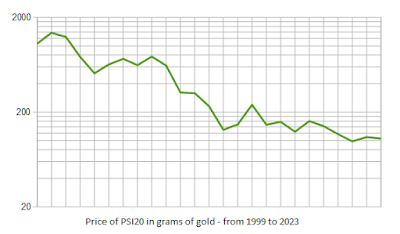History is full of stories of people leaving their homelands for a mix of reasons, ranging from climate and economy to political persecution. There's nothing new in this, so we shouldn't be surprised to learn that this is still going on.
People migrate from poor countries to rich countries in order to better their economic situation, people migrate from cold countries to warmer countries to better their quality of life, and people migrate from oppressive countries to freer countries to gain more control over their private affairs.
With people migrating for these different reasons, it's not surprising that we find people moving in both directions between countries. I moved from Norway to Portugal in order to better my quality of life and get better control over my finances. My wife's nephew moved from Portugal to Denmark in order to get better paid work. I was driven by climate and politics. My wife's nephew was driven by economy.
This explains why people come and go. Last time I checked, some 15 years ago, Norway had a net immigration of 40,000 people per year. This was divided into 70,000 moving to Norway, and 30,000 leaving the country.
These are big numbers for a country of five million people. If they have persisted over the years, we're now talking about a net immigration of 600,000 people, with 1,050,000 people entering the country and 450,000 people leaving.
Many of these people are the same. Some live in Norway for a few years before moving on, so things are not quite as extreme as it may look. But it's fair to say that a large percentage of the five million people now living in Norway are not ethnic Norwegians.
None of this has gotten much attention until recently, when there's been a surge in the number of very wealthy people leaving Norway. Rich Norwegians are moving to Switzerland. Their destination of choice is Lugano.
Lugano is a town of 150,000 people, and the number of rich Norwegians settling there is probably less than a hundred, so the town is not exactly inundated with Norwegians. However, the net wealth of these immigrants is considerable, so the price of luxury dwellings may go up somewhat. Apart from that, there won't be much change to the town in the short term.
The emigration from Norway isn't going to have much immediate impact either. The Norwegian state is rich enough to allow for this reduction to their tax base. What is lost in terms of taxation will be compensated for by other means. The sovereign wealth fund will be used to compensate for the loss of taxes.
All of this has been very predictable. Norwegians have for decades been told that Norway is the best place in the world to live. They have also been told that we don't need rich people because the state is so rich that any shortfalls in taxes will be made up for by its other incomes.
This has made people increasingly hostile towards the selfish rich people that no-one needs, and taxes have been increased on them with the excuse that they don't really deserve to be rich. The logic is that Norway is so wonderful that no-one will leave, and taxes on the rich can therefore be put very high without consequence.
But this isn't how things have been going. Decades of emigration have had its toll. Norway is no longer the best place to live. It's been dropping in its ranking. It's also becoming increasingly clear that the UN measure is based on some rather spurious factors. There are much nicer places to live than in Norway, and Lugano is an example of this.
What is lost in Norway is not merely a tax base. Industry and investments are lost too. Those leaving Norway will start looking for opportunity in their new country, and what is invested there isn't invested in Norway.
This doesn't happen immediately. It takes time to properly integrate into a new place. It may take a generation. But wealthy Norwegians in Switzerland will become a noticeable influence in the future, and Norway will be correspondingly poorer for it.
This mechanism isn't only happening in Norway. We see this all over the place. A lot of attention is given to the migration patterns of poor people coming up from mismanaged countries in the south, while little attention is given to the migration patterns of the rich.
This is because the number of poor people moving is so much greater than the number of rich people moving. But if we look at people in terms of resources, we'd see that a few rich people moving is as important as a large number of poor people moving, and the effect is often opposite. Many poor people end up being a drain on the societies they move to, while rich people tend to invest in the communities they move into.
People are moving internally in Europe. The same is happening in the US. There are also large influxes of poor people moving into both the US and Europe from the south.
The end result will be a concentration of different cultures into different places. The rich and the powerful will drift towards places like Lugano. The poor will drift towards places like Oslo.
This will in turn force places like Oslo to become increasingly parasitic on its remaining tax base as well as more aggressively parasitic to all places under its domain. With Oslo being the capital city of Norway, we'll see Oslo go the same way as Lisbon went a few hundred years ago. The nation as a whole will suffer from the parasitic tendencies of its capital city.
 |
| Lugano |
By SamuelFerrara - Own work, CC BY-SA 4.0, Link














